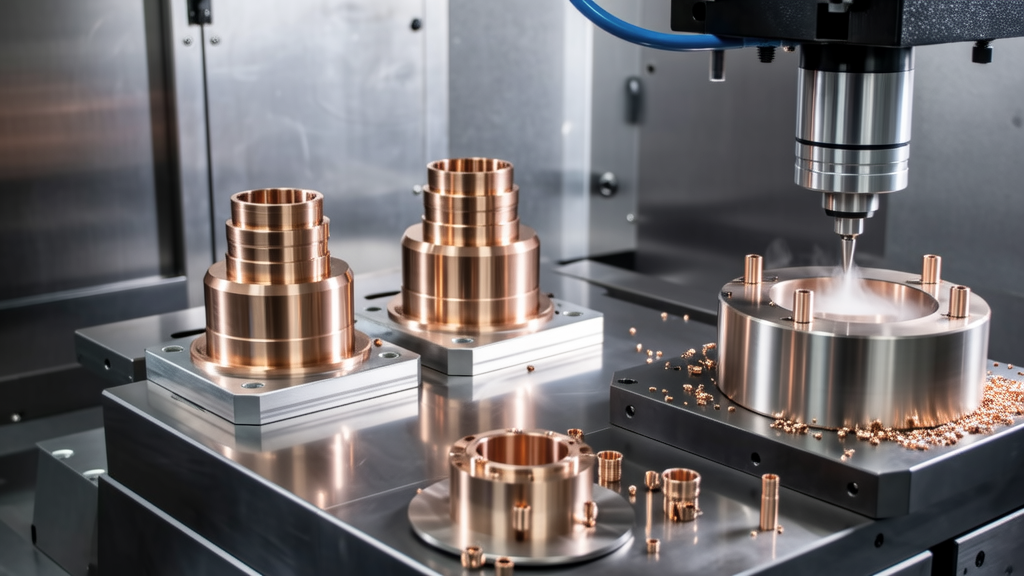Assessing Experience and Reputation
First things first: look for experience and a good reputation. You might wonder, “How do I find that out?” One of the best ways is by checking online reviews and testimonials. I remember helping a friend last year who was looking for a new machining partner. We looked through several suppliers’ online presence, and we found that those with clear, positive reviews tended to deliver better results. It was a simple but effective strategy.
Don’t be shy about reaching out directly to companies. A quick call can reveal a lot about their expertise. Ask them about their experience in your specific industry. For instance, if you’re in the automotive sector, find out if they have worked with similar components before. It gives you confidence knowing they’ve been around the block and know the ins and outs.
Evaluating Quality Control Processes
Next, let’s talk about quality assurance. A reliable supplier should have robust quality control processes in place. You can ask them specific questions about how they maintain quality during production. For example, do they implement ISO certification? Do they have a dedicated team for quality checks?
I find it very useful to ask for samples of their work. This gives you firsthand insight into their capabilities. When I had to choose a supplier for my own projects, I requested some sample parts. The quality was top-notch, and it made my decision much easier. Plus, it’s an opportunity to see if they can meet your dimensional and finish requirements without any hassle.
Here’s a quick table that summarizes key quality control factors you can look for:
| Quality Control Factor | Description | Importance |
|---|---|---|
| ISO Certification | Indicates standardized quality management | High |
| Dedicated QA Team | Focuses on identifying issues before shipment | Medium |
| Sample Reviews | Assesses the actual work quality | High |
Communication and Support
Lastly, let’s chat about communication. How a supplier responds to your inquiries can be a big indicator of how they’ll work with you in the future. Look for a company that is responsive and takes the time to answer all your questions. When I worked with a supplier who was always available for a quick chat or email, it eased many of the administrative burdens and helped keep projects on track.

Make sure they are willing to share updates throughout the production process. You want to deal with a partner that treats your project with care and communicates issues promptly, rather than leaving you in the dark.
If you put these tips into practice, you’ll be in a much better position to choose a reliable CNC machining supplier in Shenzhen. Remember, it’s not just about price – it’s about building a relationship that ensures quality, timely delivery, and support throughout your projects. If you try any of these methods, I’d love to hear about your experience!
How can I assess the reputation of a CNC machining supplier in Shenzhen?
Start by checking online reviews and testimonials. It’s often the easiest way to gauge a supplier’s reputation. I once helped a friend find a machining partner, and we discovered that suppliers with clear, positive feedback often delivered better quality.
Additionally, don’t hesitate to reach out to other businesses in your industry to ask for recommendations. Their experiences can provide useful insights that online reviews might not cover.
What quality control processes should I look for in a CNC supplier?
You want to make sure your supplier has robust quality control measures in place. Ask if they have ISO certification; it’s a good sign that they adhere to international standards. I remember visiting a supplier that implemented regular quality checks, which gave me confidence in their processes.

Requesting samples is another effective way to evaluate their quality. This hands-on approach lets you see the work for yourself before committing.
How important is communication when selecting a CNC machining supplier?
Communication is crucial in any business partnership, especially in manufacturing. You want a supplier who responds promptly and clearly to your inquiries. From my experience, suppliers who keep you in the loop about your order status tend to be more reliable.
Look for vendors who are open to discussing any issues that arise during production. It can make a significant difference in how smoothly your project goes.
What red flags should I be aware of when evaluating potential CNC suppliers?
Be cautious if a supplier lacks transparency or avoids answering your questions directly. I’ve seen situations where unclear communication led to major problems down the line. If it feels like pulling teeth to get straightforward information, it might be best to keep looking.
Another red flag is if they are very evasive about you asking for quality certifications or samples. Trustworthy suppliers should be proud to share their achievements and capabilities.
How do I know if a CNC machining supplier is experienced in my specific industry?
Check their portfolio or ask directly about their experience with similar projects in your industry. When I needed a supplier for automotive parts, I focused on vendors who had proven experience in that sector.
Ask them targeted questions about past projects. The right supplier will have specific examples to share that relate directly to what you need.



